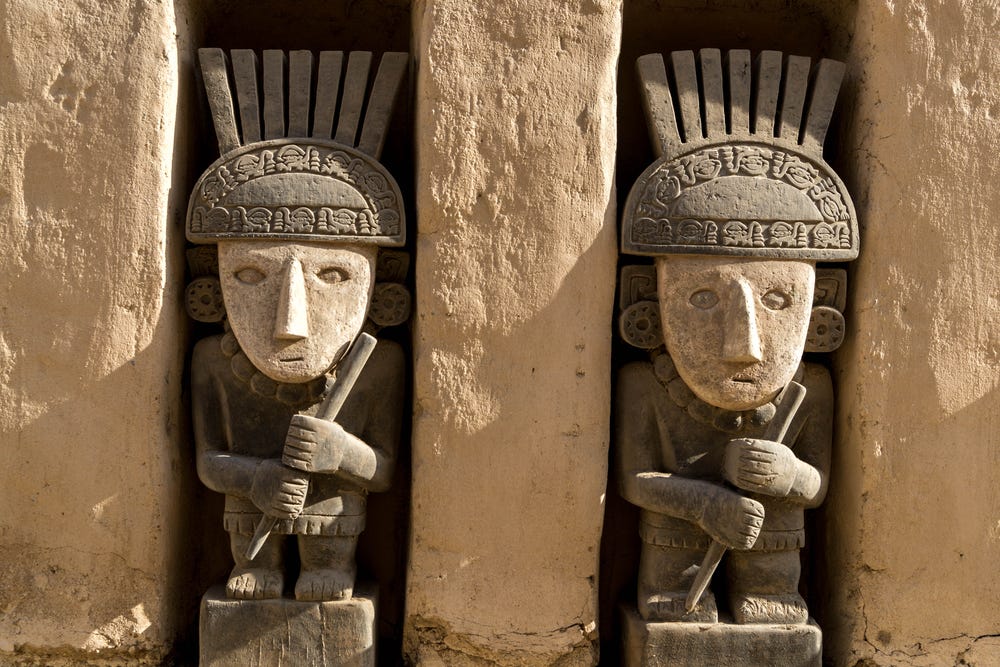One in four Brazilians bet online
Brazil betting survey, Chile’s unregulated gambling problem, Kambi expansion, Sportium’s Mexico play +More
Welcome to the second edition of the weekly newsletter LosIngresos+Más. Here you will find the most relevant and latest news from the betting industry in Latin America: regulation, business moves and new investments, country by country.
Survey reveals 25% of Brazilians have placed a sports bet online.
Unregulated gambling in Chile is facilitating money laundering and organized crime.
Camilo Millon will oversee Kambi’s commercial expansion throughout the region.
With the integration of Ganabet, Sportium has strengthened its presence in Mexico.
Supervisory bodies raise objections to amendments in Peru’s gaming law.
Events: Peru Gaming Show, SiGMA Americas fair in Brazil.
Brazilian betting survey
One in four Brazilians have wagered money on sports-betting apps.
The survey, conducted on a sample of more than 2,000 smartphone users, found that 25% of respondents had already used – and put money into – a sports-betting app. Most were young men from low-income families.
Among Brazilians in socioeconomic classes A and B (who earn more than 10 times the minimum wage), just over one in five (22%) smartphone users have wagered through such apps. In strata D and E, this proportion is as high as one in three.
The most popular sportsbook apps in Brazil are bet365, Betano, Blaze, Pixbet and Sportingbet.
60% admitted that they lost more money than they earned; rising to 65% among class D and E bettors.
Apps for online sports betting were legalized in 2018, during the government of President Michel Temer, as a form of national lottery. The Ministry of Finance had a period of four years to regulate the activity, which has already been met.
The current government, headed by Luiz Inácio Lula da Silva, is seeking to push the legislation forward because this activity is a necessary source of tax revenue to reach its target of primary surpluses this year and in the coming years.
The scandal of rigged matches in the country's football league has hit the industry's reputation, as well as the government trying to regulate and tax it. All top division clubs in Brazil are sponsored by bookmakers.
In May, the Ministry of Justice asked the Federal Police to investigate a betting scheme after prosecutors discovered that several players received money to deliberately get a yellow card.
In April, the Ministry of Finance demanded that eight of Brazil’s largest teams declare their relationship with digital betting platforms, as most have sports-betting companies among their main sponsors.
That same month, finance minister Fernando Haddad estimated that taxes on these platforms could generate between R$12bn and R$15bn (~$2.5m-$3m) per year in revenue.
Meanwhile, the Brazil Football Confederation (CBF) is pressing the Ministry of Finance for a larger share of tax revenues from these platforms. In Brazil, organizations that license their brands for sports-lottery games operated by state-controlled entities and banks earn 1.63% of net betting revenues.
CBF now wants similar treatment with respect to sports-betting platforms; ie, a 4% share of its gross revenue.
** SPONSOR’S MESSAGE ** EveryMatrix delivers iGaming software, solutions, content and services for casino, sports betting, payments, and affiliate/agent management to 200+ global Tier-1 operators and newer brands. The platform is modular, scalable, and compliant, allowing operators to choose the optimal solution depending on their needs.
EveryMatrix empowers clients to unleash bold ideas and deliver outstanding player experiences in regulated markets.
Unregulated Chile
Unregulated gambling is facilitating money laundering and organized crime.
Under the Chilean Constitution and Penal Code gambling is prohibited, with specific and strict exceptions. However, hundreds of gambling halls flood the major cities of the country, and online bookmakers sponsor professional football teams and even the national championship. What is the reason for this apparent paradox?
For Carlos Silva, corporate affairs manager of Dreams, a local chain of hotels and casinos, if these activities are not properly regulated, they can be used for money laundering and linked to organized crime. He added that there were risks of fraud, access to minors, control of gambling problems, and more.
How do they work? According to Silva, the owners of these slot machine shops (which so far can operate in any commercial establishment) assure that their machines are not games of chance but dexterity.
“A skill that consists of pushing a button, it’s a bit ridiculous, the experience of the gamer is that of being in front of a gambling machine,” he said.
It is, added the lawyer, a way of circumventing the law “and it is ridiculous, because they are the same games that we have in casinos”.
Some municipalities have begun to punish these activities, and the Rancagua Court of Appeals upheld the seizure and closure measure because the owners of these businesses could not prove that they were games of skill.
Regarding online gambling, the country's professional first division football championship is named after a well-known online betting site (Betsson), an activity that has been declared illegal by the Internal Revenue Service.
Many professional football clubs have such betting companies as their shirt sponsors.
According to Silva, all these activities constitute unfair competition for established casinos operating under licenses, which provide formal employment and pay tax.
In February, Polla Chilena de Beneficencia (the state-owned lottery) filed a lawsuit “against those responsible” for an online betting operation in Chile, which the state-owned firm described as “illegal,” because they are the only ones authorized in Chile to offer sports betting.
For this reason, before the Eighth Guarantee Court of Santiago they alluded to Betsson, Betano, Coolbet, Latamwin and Betway.
According to data from the Superintendency of Gaming Casinos, Chileans can access more than nine hundred online gambling sites – an unregulated and illegal activity in the country – which do not pay taxes although, suggested the Chilean Association of Gaming Casinos, they move between $130m and $170m a year.
Legislation that would put an end to this situation is being reviewed by the Chilean Congress and could be ready by the end of this year.
The new law establishes two main forms of income for Chilean coffers:
1,000 UTM (~$78,000) for a general license for online betting operators,
An excise tax of 20% of gross receipts as a substitute for VAT.
An additional excise duty to promote responsible gambling.
The tax on players' winnings would be around 15% but could vary depending on the type of game.
A second temporary license with a price in UTMs to be established is being discussed.
Career paths
Camilo Millon, formerly with Kiron Interactive, will oversee Kambi’s commercial expansion across the region.
Millon, who until March served as Kiron Interactive's head of sales for Spain and Latin America, will lead the sales processes for Kambi's full range of turnkey sports-betting and modular services, including the award-winning Kambi Bet Builder, and will oversee Kambi's business expansion across the region.
Sarah Robertson, Kambi’s senior vice-president of sales, said that with Millon’s leadership Kambi would consolidate itself as one of the leaders of sports betting in the region.
Millon will be present at the Kambi Festival of Sportsbook 2023, which will be held from June 6 to 9.
Sportium consolidation
Sportium consolidates in Mexico with the integration of online betting operator Ganabet.
Sportium, the leading sports-betting company in Spain and with a presence in 11 countries, has joined with Ganabet, the fifth-largest online betting company in Mexico for a price of more than €20m ($21.4m), according to the annual report of the company chaired by Joaquim Agut.
In addition to a sports-betting portal, Ganabet – based in the city of Guadalajara – also has an online casino service, with games such as roulette, bingo and slots.
Sportium is the sports-betting arm of the Cirsa Group, a leading gaming and leisure multinational in Spain and Latin America with more than 40 years of experience in the sector and for five years now controlled by Blackstone.
The move has enabled Cirsa to consolidate its presence in Mexico, its fifth-most important market, which went from 5.2% of sales in 2022 to 7.2% in 2023. Its activity focuses on bingo and it has 28 lounges. Prior to the pandemic, the operation in Mexico accounted for 10% of Cirsa's global revenue.
Peru gaming law
Supervisory bodies raise objections to amendments of Peru’s gaming law.
Technical bodies such as the Ministry of Foreign Trade and Tourism (Mincetur – the entity in charge of overseeing gambling in all its forms in Peru), the Ministry of Economy and Finance (MEF) and the Financial Intelligence Unit of the Superintendency of Banking, Insurance and AFP (UIF-SBS) have shared their observations on the recently approved regulation amending the 2022 gambling law.
The aim of the regulation is “to guarantee freedom of work, the fundamental right to work, freedom of enterprise, the right to remuneration for persons and workers engaged in the activity, as well as to guarantee equal competence, effective regulation of activity and equality before the law”.
In the view of Mincetur, this amounts to rewriting the fundamental aspects of the law, which seeks to improve and change the “spirit of the law”. For the ministry, these changes weaken its ability to control and supervise the activity.
The National Institute for the Defense of Competition and the Protection of Intellectual Property (INDECOPI) pointed out that, although it is not within its competence to give an opinion on the rule amending the gaming law, there is no technical evidence to support the need to reduce the requirements and the guarantees required for micro and small enterprises in this area.
For its part, the UIF-SBS noted that the amendments “would make it impossible for companies operating remote sports betting and gaming to apply customer due diligence measures through the identification, verification and monitoring of the information collected”.
These are “essential to the implementation of effective measures to enable systems for the prevention of money laundering and terrorist financing (LAFT) to combat the above-mentioned offenses”, it stated.
MEF noted that Act No. 31557, which is being amended, does not infringe the right to equality before the law, since it already “taxes legal persons incorporated abroad; this follows from the provisions of paragraph 7.1 and article 40 of [the act], as currently in force, which allows such persons to be taxed as long as they are established in Peru through a branch”.
It also noted that one of the amendments impedes the prevention of addictive behaviors by the most vulnerable socio-economic sectors.
The Presidency of the Council of Ministers considered that the amendment affected the separation of powers since it determined the action of the regulator, in this case Mincetur, in relation to infringements committed by gambling operators.
Positive opinions came from the Workers’ General Confederation of Peru, the Foreign Trade Society and the Peruvian Betting Association.
Event calendar
Peru Gaming Show 2023
Peru's largest games event will be held from June 13 to 15 at the Convention Center of the Jockey Club of Peru in Lima.
The Peru Gaming Show attracts the most prestigious brands in the world, slot machine manufacturers, software developers and platforms for online games and sports betting, to present their newest products and services.
Merkur Gaming, part of the Gauselmann Group, announced its participation in the event as “the most important B2B event in the region”. For its part, Aristocrat Gaming said that it will present its new collection of games at the fair.
Other relevant players in the industry, such as Win Systems, Konami, Endorphina, Pragmatic Play, Novomatic, BetConstruct and Land Vegas, among others, also announced their participation by introducing state-of-the-art products and services.
As reported by Affiliated Marketing Group – organizer of the PGS – June 13 will see an exclusive networking event, while the expo itself and 14 master lectures will take place on June 14 and 15.
SiGMA Americas
SiGMA Americas prepares its first international trade fair in Brazil.
SiGMA's event director Emily Demajo spoke to Focus Gaming News about the goals and expectations of the fair, which will take place in Brazil on June 14-18.
According to Demajo, between 6,000 and 8,000 people are expected to attend the event at the Transamerica Expo Centre in São Paulo. The fair has 16,000 square meters of space to exhibit products and services and listen to the more than 250 first-level exhibitors who will participate in panels and master lectures.
The organization announced that during the event there will be numerous networking opportunities: dinners at the best restaurants in the city, an awards gala, a charity auction of works of art and the closing party.
“Operators, suppliers and affiliates have asked us to expand into emerging markets such as Africa, Asia, and Latin America. We have heard these demands and, by merging SiGMA Americas with BiS [Brazilian iGaming Summit], we are able to create a unique experience in the LatAm region,” said Demajo.
Sports betting and lottery in Brazil are growing significantly, attracting many new investors. The prosperity of this market is underpinned by proposed legislation to regulate sports betting, as well as by one million active online gamblers.
For SiGMA, the Brazilian market presents unique challenges and requires an in-depth knowledge of culture, preferences and the legal framework.
Traders should understand what payment methods are preferred by local traders, marketing strategies and customer preferences.
Publishing schedule
This is the English translation of the LosIngresos+Mas newsletter published yesterday.
An +More Media publication.
For sponsorship inquiries email scott@andmore.media.









